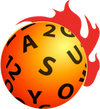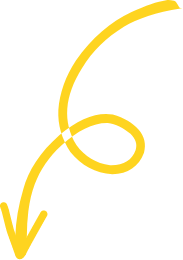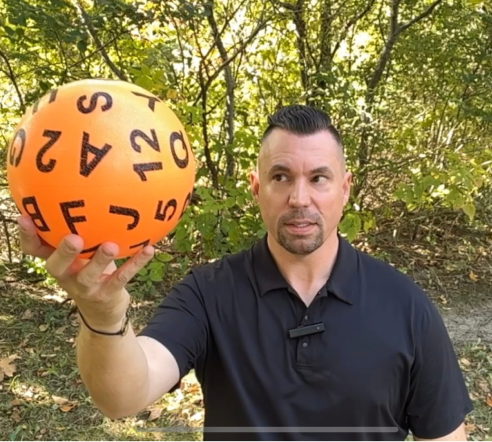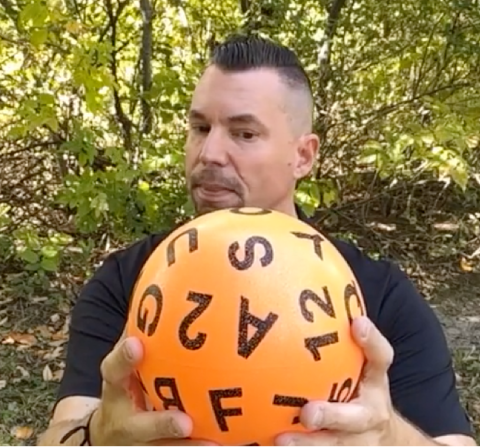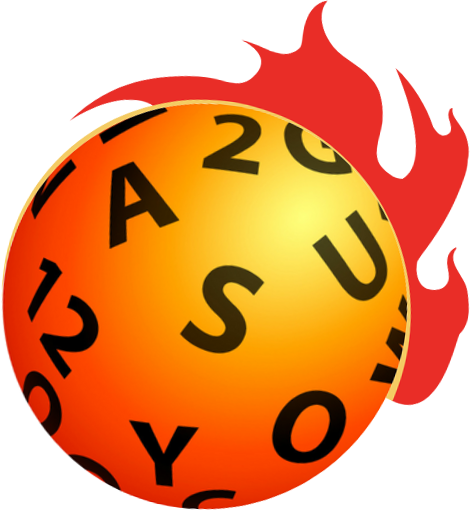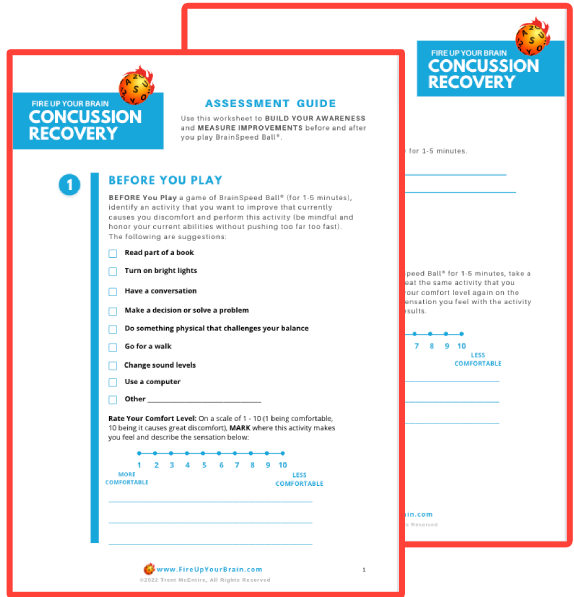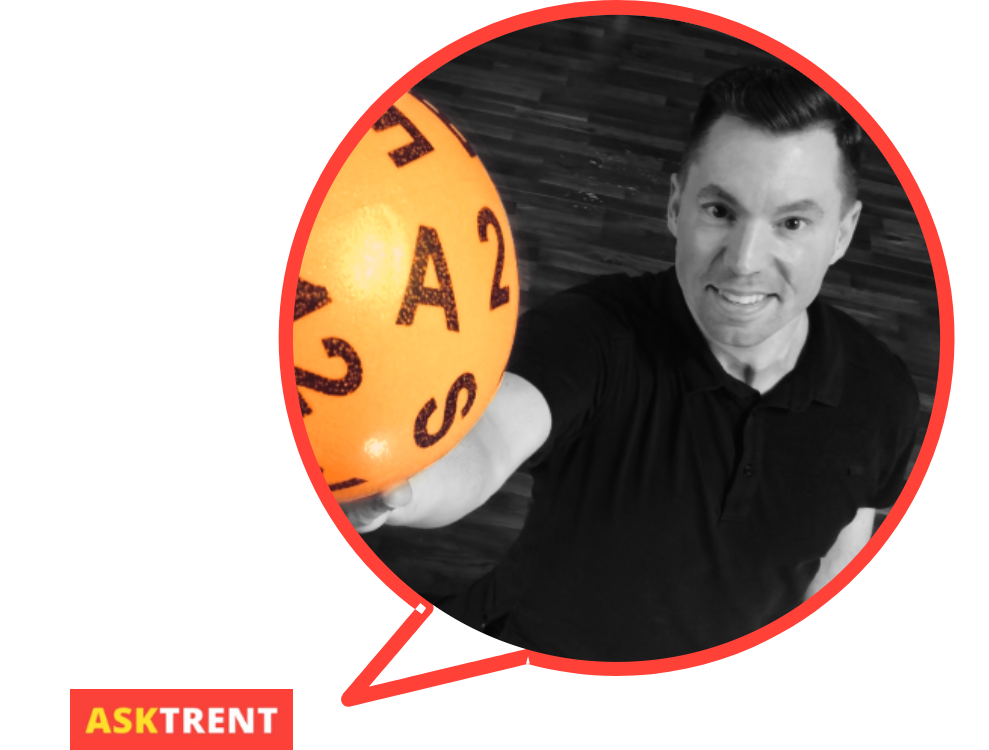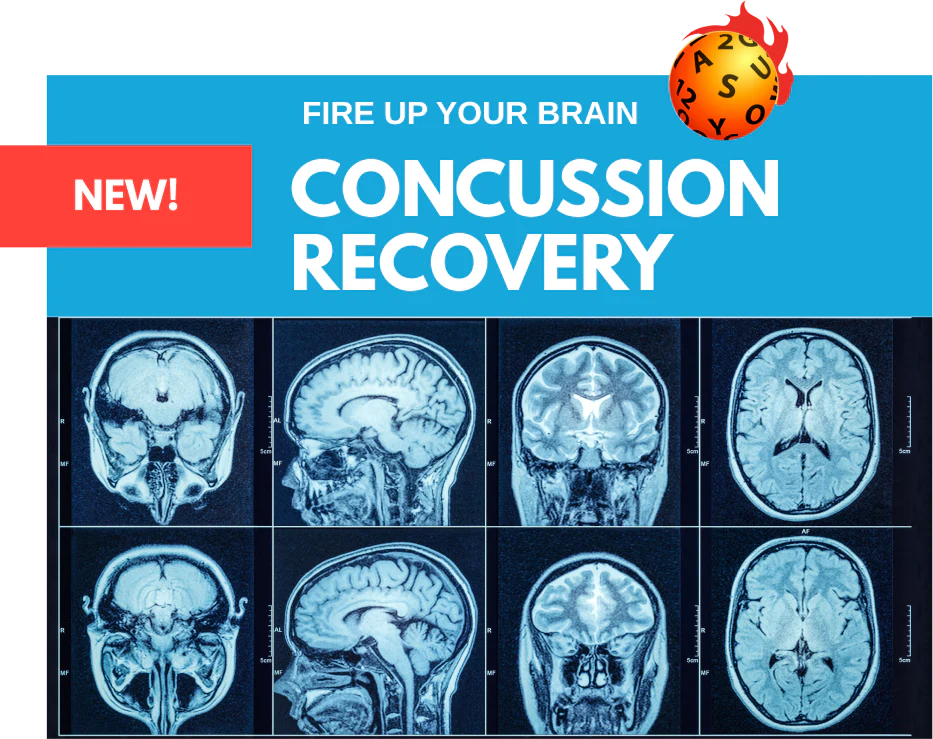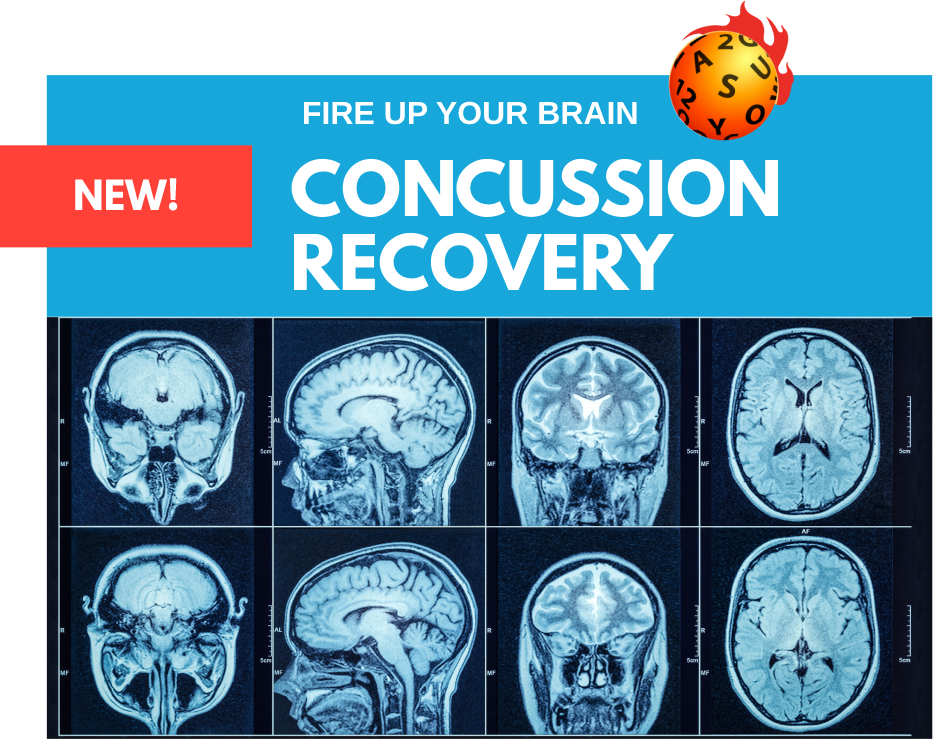
Join Trent McEntire, creator of the BrainSpeed Ball and Movement Expert for the Concussion Recovery program.
Struggling with the after-effects of a Concussion or Mild Traumatic Brain Injury (mTBI)?
There are more than 1.5 million people in the U.S. who experience brain injuries each year, 40% with lingering symptoms.
Symptoms can show up in a number of ways including headaches, vision changes, light or noise sensitivity, balance issues, and dizziness. Depression and anxiety are also symptoms of a concussion (that can easily be confused with other mental health conditions). Cognitive symptoms can show up as memory problems, brain fog, finding the right words, and difficulty focusing. Sleep can be impacted by sleeping too much, too little, or even being unable to fall asleep.
Concussion Recovery through the EYES and EARS
When you experience a concussion or mTBI, it creates a disruption in how your Vestibular system (EARS) and Visual system (EYES) operate with your brain. This disruption results in dizziness, balance issues, and other lingering post-concussion symptoms.
These gaps in your sensory systems should be addressed with exercises that include eye movements, head movements, eye-head movements, and gaze stabilization. When your Vestibular and Visual sensory systems work well together, the brain receives input correctly and brain processing is improved while also reducing post-concussion symptoms. The key is to apply these techniques in a way that does not further stress the brain.
How does the BrainSpeed Ball® help?
Playing BrainSpeed Ball® for up to 5 minutes each day provides an easy, FUN, and stress-free way (without the computer screen) to coordinate the sensory systems. BrainSpeed Ball® games involve eye tracking and head movement in ways that are fun and effective while keeping the brain curious and engaged. When your brain processing is working correctly, you will see your symptoms start to disappear. In fact, in some cases, the results can be immediate. As one person that struggled with the long-term effects of a brain injury said, “It was like turning a light switch on after he played BrainSpeed Ball® for just a few minutes.”
- Eliminate dizziness and headaches.
- Improve balance and the ability to move more freely
- Decrease sensitivity to light and noise.
- Improve your body's ability to sleep consistently and eliminate fatigue
- Increase levels of concentration and memory while reducing brain fog.
- Improve mental health by lowering depression and anxiety
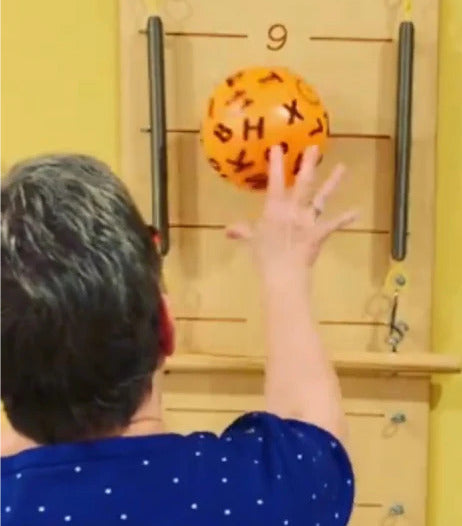
RECOVERING FROM A TBI
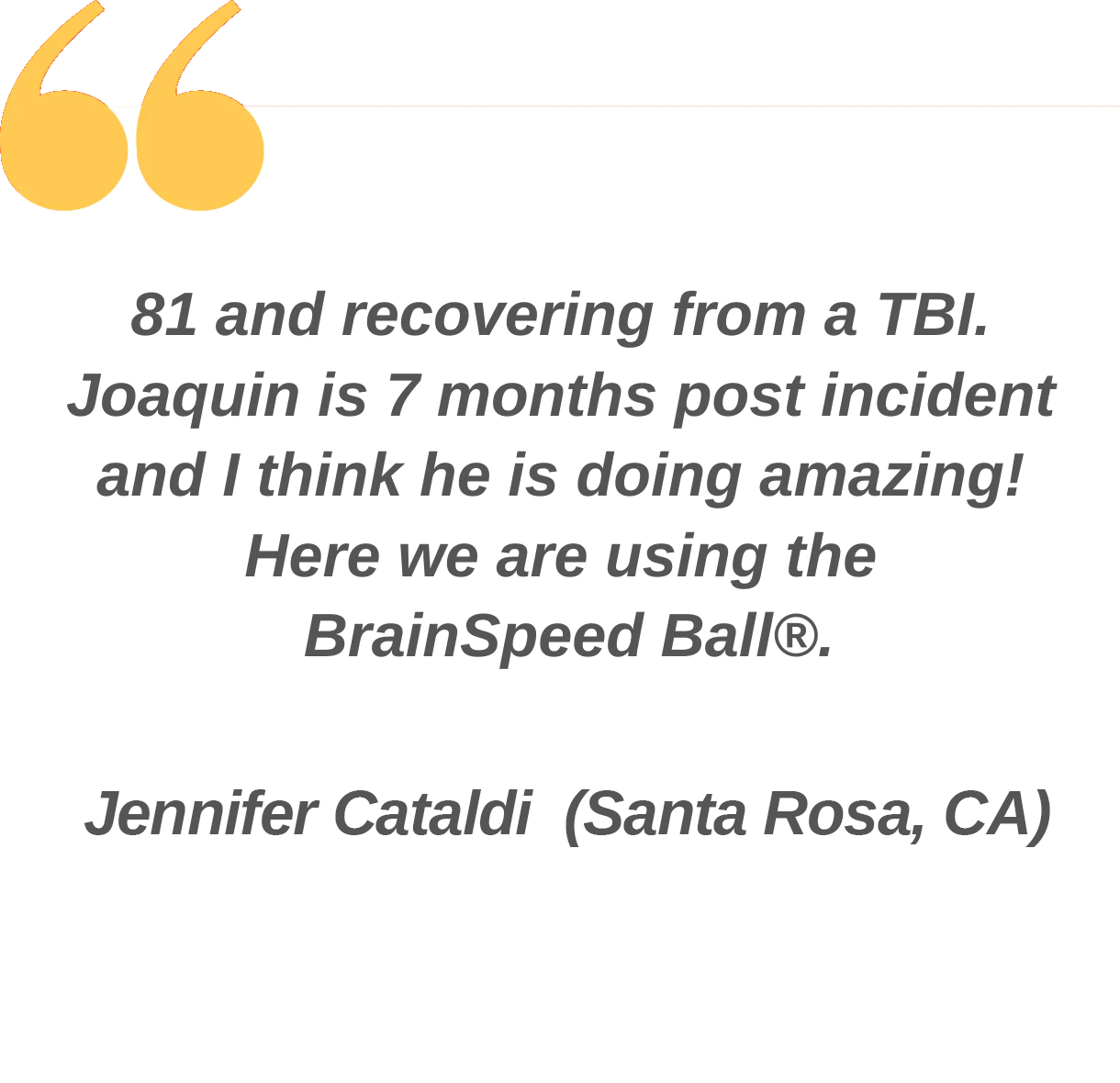
PLAYING WITH A TWIST
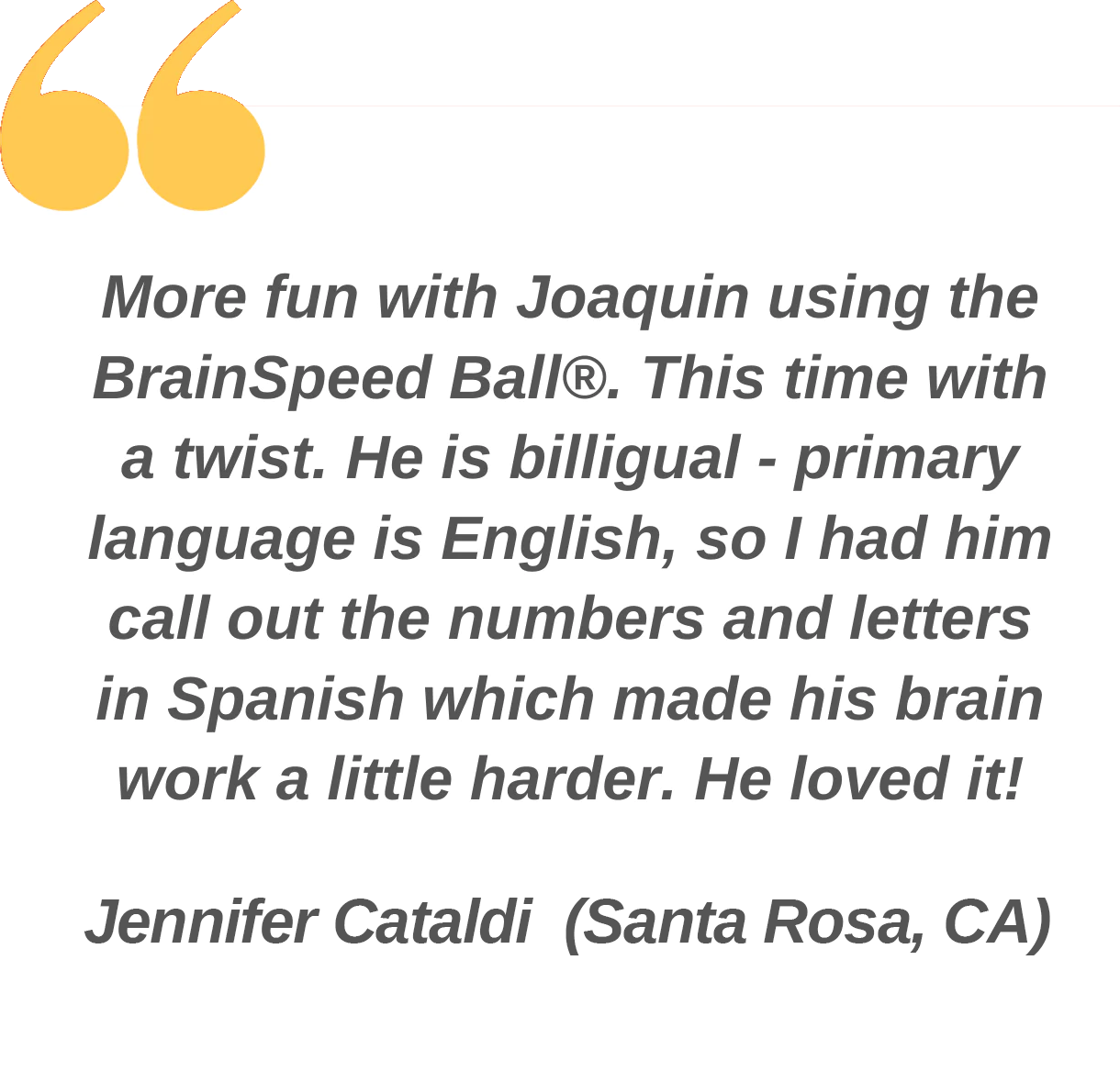
BrainSpeed Ball® key to Dan's recovery
A motorcross accident and more than a month in a coma, Dan struggled
with neurological problems and physical challenges. Listen to Dan's story...
Navy Seal Uses BrainSpeed Ball® For TBI Recovery
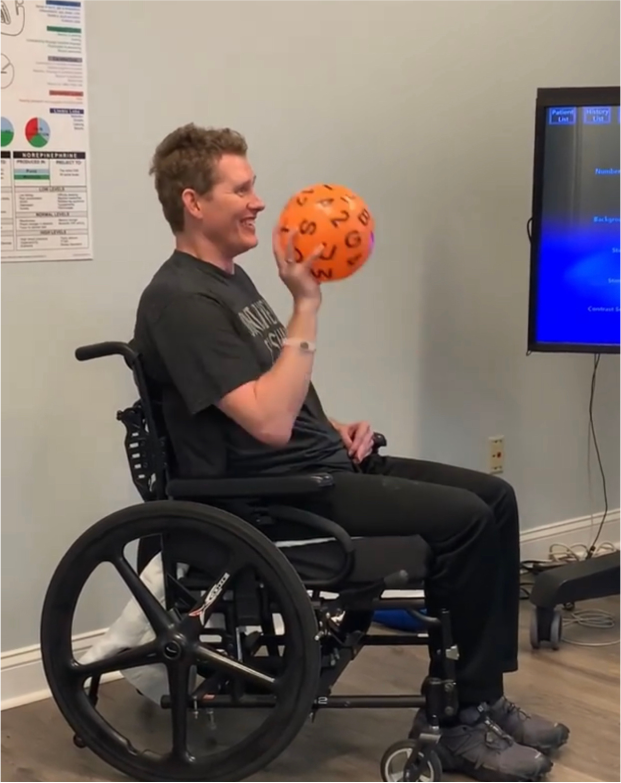
I learned about Trent's work and the BrainSpeed Ball® at
a neurological conference,
now I use it with my TBI,
cognitive impairment, and peak performance patients."
Dr. Michael S. Trayford,
Founder and Chief Medical Officer Apex Brain Center
